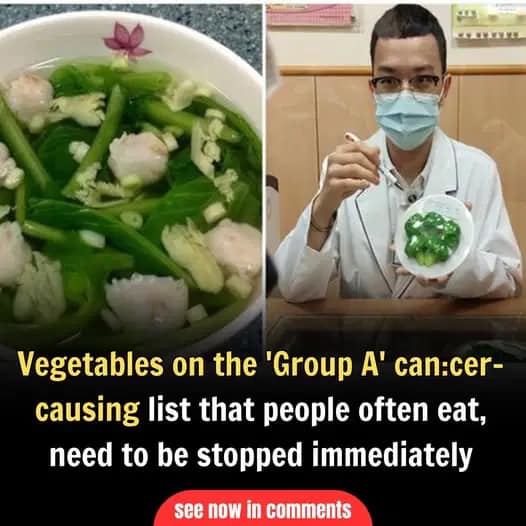ADVERTISEMENT
1. Processed Vegetables
Vegetables that are smoked, salted, or pickled and have undergone certain preservation processes can contain compounds like nitrosamines or acrylamide, both of which have been shown to increase cancer risk in certain studies. These preservatives and chemicals might form when vegetables are processed or prepared at high temperatures.
- Pickled Vegetables: When vegetables like cucumbers or cabbage are pickled, especially if they are high in salt or nitrates, they can form nitrosamines, which are known carcinogens.
- Smoked Vegetables: Smoking vegetables may introduce polycyclic aromatic hydrocarbons (PAHs), another class of carcinogens that are formed when food is exposed to smoke.
2. Overcooked or Charred Vegetables
When vegetables are cooked at very high temperatures, such as through grilling, frying, or barbecuing, they can produce acrylamide, a chemical compound formed when food is exposed to high heat. While acrylamide is more commonly associated with starchy foods like potatoes, it can also form in non-starchy vegetables when cooked to extremes.
Charred or overly cooked vegetables (like those with blackened parts) might carry higher concentrations of acrylamide, increasing the risk of cancer. Therefore, cooking methods like steaming or sautéing are considered safer than methods involving excessive heat.
How to Enjoy Vegetables Safely
While some vegetables are classified as potentially cancer-causing when consumed in excess or processed in certain ways, it’s important to remember that eating vegetables in moderation and choosing healthy cooking methods can significantly reduce the risk. Here are some tips to ensure you’re getting the best from your vegetables:
1. Choose Fresh Vegetables Over Processed Ones
Whenever possible, opt for fresh vegetables rather than processed or preserved varieties. Avoid pickling or preserving with excess salt or nitrates. If you prefer pickles or other preserved vegetables, try making your own at home using natural ingredients and minimizing salt.
2. Cook Vegetables at Low to Medium Temperatures
To reduce the risk of forming harmful compounds, try to steam, blanch, or sauté your vegetables instead of frying, grilling, or charring them. This helps preserve their nutrients while avoiding harmful chemicals like acrylamide.
3. Diversify Your Vegetable Intake
A balanced diet with a variety of vegetables is essential to ensure you’re getting a broad spectrum of nutrients. Different vegetables contain different compounds that can protect against illness and contribute to overall well-being. Eating a variety of vegetables can help reduce the risk of any one specific food affecting your health.
4. Avoid Overcooking
Overcooking vegetables can not only deplete their nutrients but also lead to the formation of harmful compounds. Make sure to cook them lightly to preserve their vitamins and minerals.
Conclusion: Are These Vegetables Dangerous?
It’s essential to remember that vegetables themselves are not inherently dangerous. They’re an important part of a healthy diet and provide numerous benefits for your health, from improving digestion to preventing chronic diseases. However, the way vegetables are processed and prepared can affect their cancer risk.
To lower your chances of exposure to harmful compounds, focus on fresh, minimally processed vegetables, healthy cooking methods, and balanced portion sizes. Like many things in nutrition, moderation is key, and this applies to even vegetables on the Group A cancer-causing list.
By being mindful of your cooking methods and choosing fresh, whole foods whenever possible, you can enjoy the numerous health benefits of vegetables without the worry of increasing your cancer risk.
ADVERTISEMENT
ADVERTISEMENT
